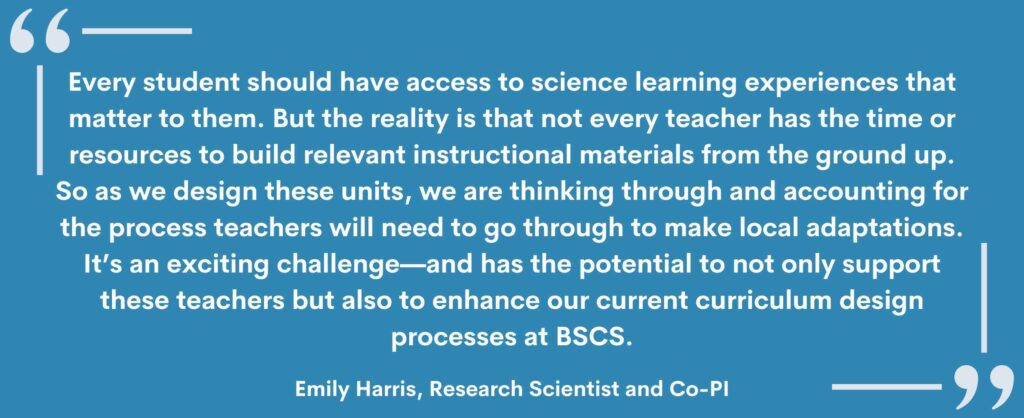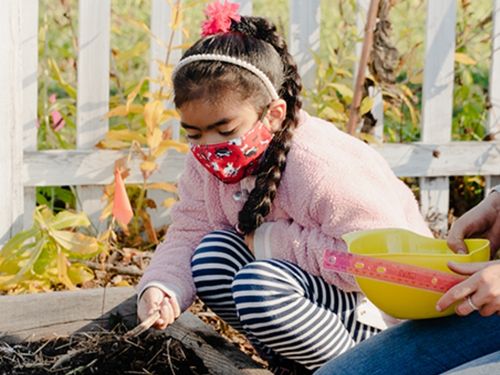Place-Based Learning for Elementary Science at Scale
Place-Based Learning for Elementary Science at Scale (PeBLES2) supports educators in making science learning experiences meaningful for their students—by connecting to local phenomena, communities, and cultures.
Project Inspiration
What do today’s science learners find interesting and relevant?
This is a question we consistently wrestle with at BSCS Science Learning—particularly when we are developing instructional materials programs for broad audiences nationwide. Our goal is to create materials that engage, inspire, and prepare all learners to use science effectively throughout their lives. And to do that, we must anchor the materials in compelling, real-world phenomena.
But what is compelling—for all learners? Realistically, there is not one phenomenon that will resonate with everyone in exactly the same way. Our world is made up of individuals with different backgrounds, cultures, and everyday lived experiences that shape their perspectives and interests. Still, we feel strongly about reaching all learners, especially those from underserved communities.
At BSCS, we want to support educators in tailoring science learning experiences for their specific contexts—so that all kids get to learn science through the lens of what really matters to them. We’ve partnered with the Maine Mathematics and Science Alliance (MMSA) to do just that.
About the Project
In the PeBLES2 project, we are working with MMSA to support equitable access to place-based science learning opportunities. This entails collaborating with upper elementary educators to make science learning meaningful for students—by connecting to local phenomena, communities, and cultures.
BSCS is leading the development of a phenomenon-driven unit for 4th grade. This unit is designed for the Next Generation Science Standards (NGSS) and is grounded in phenomena that can be adapted for various local contexts. MMSA guided teachers in incorporating locally or culturally relevant phenomena into the unit through a two-year enactment study.
We explored how teachers adapt units over multiple years as well as the impact of this intervention on teacher self-efficacy and agency in science teaching and students’ perceptions of relevance.
2020-2022
BSCS developed 4th grade unit, MMSA led unit pilot, BSCS revised unit.
2023-2024
MMSA led professional learning for 45 4th grade teachers. Participating teachers adapted and taught unit over the course of two years.
2024
BSCS revised units and MMSA revised professional learning, based on teacher feedback and research findings, for public release.

Explore the Resources
The tested and revised 4th grade Earth Science unit and accompanying professional learning materials as well as our research results are available at the project website. This unit focuses on weathering, erosion and deposition.
This material is based upon work supported by the National Science Foundation under Grant No. 2009613. Any opinions, findings, and conclusions or recommendations expressed in this material are those of the author(s) and do not necessarily reflect the views of the National Science Foundation.
